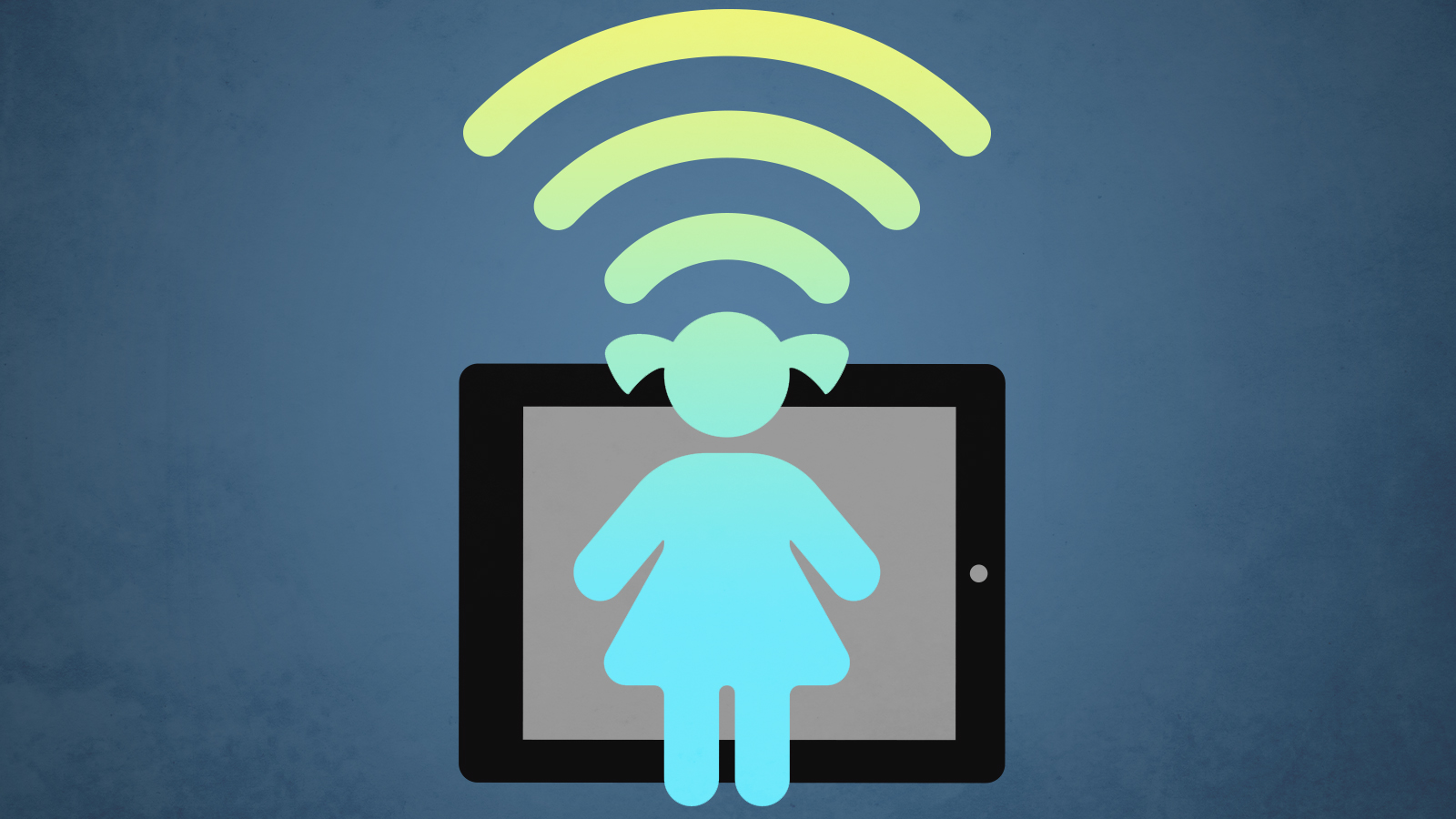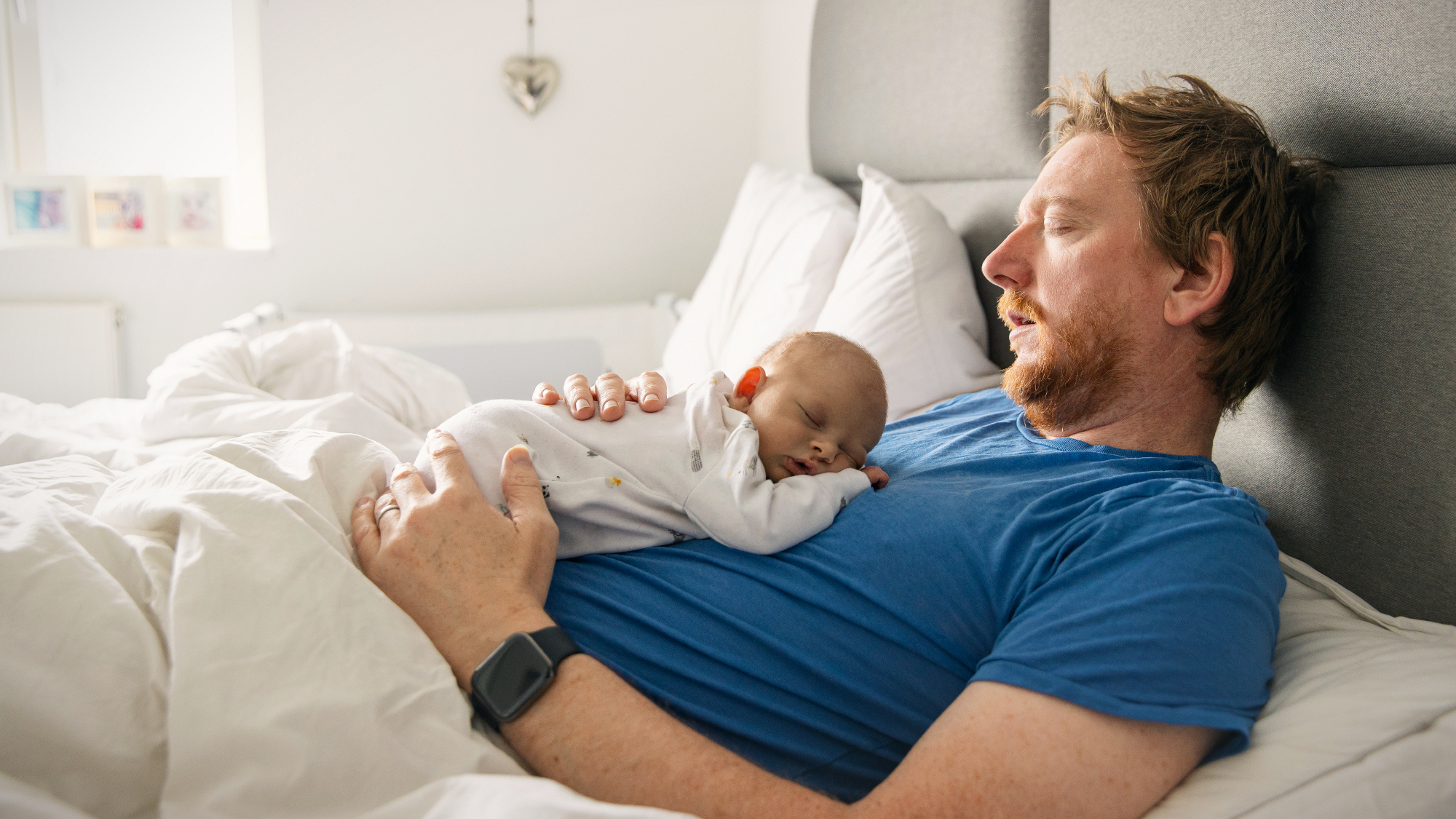The week's best parenting advice: October 12, 2021
Surprising findings about screentime, the debate over gendered toys, and more


A free daily email with the biggest news stories of the day – and the best features from TheWeek.com
You are now subscribed
Your newsletter sign-up was successful
1. Score 1 for screentime
How dangerous is screentime, really? New research published in the journal PLOS ONE found that among a large cohort of 9- and 10-year-olds, increased screentime was indeed associated with negative outcomes like sleep problems and low grades, but only very slightly. "We found that yes, there are relationships between screentime and negative outcomes, but they are not large and not dire," says John Hewitt, director of the Institute for Behavioral Genetics. On the flipside, the study found kids who have more screentime also have more close friends. "These findings suggest that we should be mindful of screens, but that screentime is likely not inherently harmful to our youth," says the study's lead author, Katie Paulich, a PhD student in the University of Colorado at Boulder Department of Psychology and Neuroscience.
2. The end of gendered toys?
Seventy-five percent of boys believe certain toys are only for girls and others are only for boys. About 60 percent of girls believe this, too, according to a survey conducted by Lego Group. The results have prompted the Danish company to stop gender-based marketing of its toys in an effort to "break stereotypes about how children play," reports Bloomberg. But marketing is only part of the problem. The survey found parents perpetuate gender stereotypes around play, encouraging boys to play with Legos far more than they do girls, for example. The push to take gender stereotypes out of play gained momentum this week when California put in place a law forcing retailers to have a "gender neutral" toy section. California Assemblyman Evan Low, who wrote the bill, said gendered marketing of toys "has led to the proliferation of [science, technology, engineering and mathematics]-geared toys in a 'boys' section and toys that direct girls to pursuits such as caring for a baby, fashion, and domestic life."
The Week
Escape your echo chamber. Get the facts behind the news, plus analysis from multiple perspectives.

Sign up for The Week's Free Newsletters
From our morning news briefing to a weekly Good News Newsletter, get the best of The Week delivered directly to your inbox.
From our morning news briefing to a weekly Good News Newsletter, get the best of The Week delivered directly to your inbox.
3. Play ball!
An interesting study in the Journal of Developmental & Behavioral Pediatrics bolsters the theory that playing sports is good for young boys' mental health. The researchers looked at physical activity levels for 690 boys and 748 girls ages 5 to 12, and also examined how those kids' teachers reported their "emotional distress" levels — things like how easily and often a child cried, difficulty having fun, or appearing fearful or anxious. They found that young boys who never engaged in sports were more likely to display "depressive and anxiety symptoms" as they went through childhood, and that these results were "exclusively" for the boys in the study. Why? Université de Montréal psychoeducator Marie-Josée Harbec, who led the research, hypothesizes that girls are more likely than boys to seek help and talk about their emotional distress rather than bottle it up, which may lead to carers interfering earlier, somewhat negating the potential benefits of sports engagement to bolster mental health.
ScienceDaily Journal of Developmental & Behavioral Pediatrics
4. The power of teachers
Teachers obviously play a large role in nurturing and educating children. But "a positive teacher-child relationship can have a bigger impact than we thought," writes Ashley Wehrli at Moms.com. Specifically, they may help keep kids away from crime. A study from the University of Edinburgh examined 1,500 kids at age 10 and identified whether they had a good or bad relationship with their teachers. The researchers then compared "delinquency" rates — things like stealing and vandalizing — among the kids as they aged, checking in when they were 13, 15, and 17, and found that those who had positive relationships with their teachers were involved in less crime. "These findings suggest that when young people perceive a better relationship with their teachers this serves as a protective factor against their engagement in delinquency up to 7 years later," the authors write.
A free daily email with the biggest news stories of the day – and the best features from TheWeek.com
Moms.com The University of Edinburgh
5. How masks are changing kids' behavior
We know masks reduce the spread of COVID-19, but they're also "changing how kids interact" in school, writes Emily Dreyfuss at The Atlantic. "For children who are meeting new classmates for the first time while masked, recognition difficulties can slow down the getting-to-know-you process and, in the long run, hinder the development of trust," she says. But parents and educators can help by encouraging kids to repeatedly introduce themselves and keep communicating so they can get to know one another through traits that go beyond physical appearance. Dreyfuss' son, for example, identified one classmate as "the boy who just came back from Disneyland." Parents should also encourage their kids to talk openly and clearly about their feelings because masks can make them hard to interpret. "Yes, masks make some interactions harder, but kids are adapting," Dreyfuss writes, adding that "none of the psychologists or teachers I spoke with is worried about long-term social impacts."
Jessica Hullinger is a writer and former deputy editor of The Week Digital. Originally from the American Midwest, she completed a degree in journalism at Indiana University Bloomington before relocating to New York City, where she pursued a career in media. After joining The Week as an intern in 2010, she served as the title’s audience development manager, senior editor and deputy editor, as well as a regular guest on “The Week Unwrapped” podcast. Her writing has featured in other publications including Popular Science, Fast Company, Fortune, and Self magazine, and she loves covering science and climate-related issues.
-
 Why are election experts taking Trump’s midterm threats seriously?
Why are election experts taking Trump’s midterm threats seriously?IN THE SPOTLIGHT As the president muses about polling place deployments and a centralized electoral system aimed at one-party control, lawmakers are taking this administration at its word
-
 ‘Restaurateurs have become millionaires’
‘Restaurateurs have become millionaires’Instant Opinion Opinion, comment and editorials of the day
-
 Earth is rapidly approaching a ‘hothouse’ trajectory of warming
Earth is rapidly approaching a ‘hothouse’ trajectory of warmingThe explainer It may become impossible to fix

